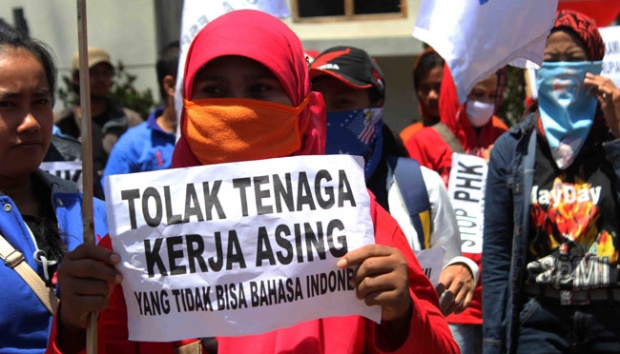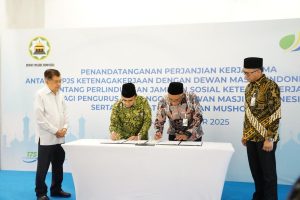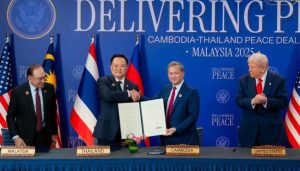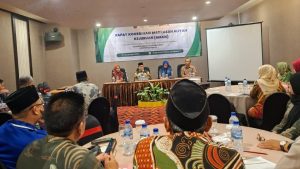Jakarta, MINA – A decree by President Joko Widodo that is set to take effect this month will simplify Indonesia’s procedures for issuing foreigners’ work permits, which are often hampered by delays, arbitrary denials and revocations, not to mention bribes to civil servants just to stamp the paperwork, New YorkK Times rReported
Buried inside the order is a section requiring all expatriate workers to undergo formal Indonesian language training, an apparent first for any nation in South-east Asia.
The foreign business community has been caught off guard by the new requirement.
“Our businesses want to be here and want to invest, but what they also want are predictable rules,” said Mr A. Lin Neumann, managing director of the American Chamber of Commerce in Indonesia, which represents nearly 300 US companies operating in the country.
Also Read: Saudi Arabia Wins Bid to Host World Expo 2030
The United States is one of Indonesia’s largest foreign direct investors, in industries including oil and gas, mining, banking, technology, e-commerce and logistics.
The language requirement “sends a negative message that foreigners are somehow unwelcome”, Mr Neumann said. “This hurts the investment climate.”
The order also applies to domestic companies, which are reacting with alarm.
Indonesia, a country of 260 million people, currently has about 126,000 working Asian and Western expatriates, a low percentage compared with neighbours like Singapore and Malaysia.
Also Read: 148 Products from Indonesia Promoted at Sarawat Superstore Jeddah
“I think this is foolish; it’s stupid. It lacks clarity on what the objective is,” said Mr Suryo B. Sulisto, a prominent Indonesian business executive and former chairman of the Indonesian Chamber of Commerce and Industry.
“What are they trying to do – stop investment coming in?” he added. “It’s counterproductive.”
The government has not explained the reasoning behind the language requirement.
But it may be an attempt by Mr Joko, who is running for re-election next year, to placate political rivals who say he is “opening the floodgates” to foreign workers by streamlining the process for obtaining work permits.
Also Read: Packaging Industry Supports Halal Ecosystem
Indonesia, a country of 260 million people, currently has about 126,000 working Asian and Western expatriates, a low percentage compared with neighbours like Singapore and Malaysia.
Increasing number of Chinese manual labourers
The complaints from Mr Joko’s opponents stem partly from an increase in the number of Chinese manual labourers entering illegally on tourist visas to work on Chinese-funded infrastructure projects. As unregistered workers, they would not be subject to the new language requirement.
Also Read: Indonesia-Japan Agree on Energy Transition Cooperation
Mr Suryo said it made little sense to address concerns about illegal foreign labour by imposing a language requirement on bankers, engineers and other professionals.
“This is another part of bureaucracy where it’s a moneymaking opportunity for someone,” he said. “People will get into the business of issuing fake language certificates.”
In 2015, Mr Joko publicly quashed a draft regulation requiring all expatriate workers to be proficient in the Indonesian language, saying it was bad for business.
But his own decree now requires companies to arrange and pay for foreigners working in the country for longer than six months to take Indonesian language courses at local schools, and to provide attendance certificates.
Also Read: Dubai Expo 2020 Holds Special Event for Palestine
If they fail to do so, the companies and their employees could face unspecified sanctions that are being drafted by the Ministry of Manpower and Transmigration, which processes and revokes foreign work permits, according to Mr Budiman, head of the ministry’s legal affairs bureau, who goes by one name.
The order goes into force tomorrow, he added.
Said Mr Johan Budi, Mr Joko’s spokesman: “It is necessary for companies to provide the facilities for training expatriates” in the language.
“But it is not mandatory to be able to speak the Indonesian language.” (T/RS5/RS1)
Also Read: Indonesia Increases Excise on Tobacco Products by 2022
Mi’raj Islamic News Agency (MINA)






























 Mina Indonesia
Mina Indonesia Mina Arabic
Mina Arabic